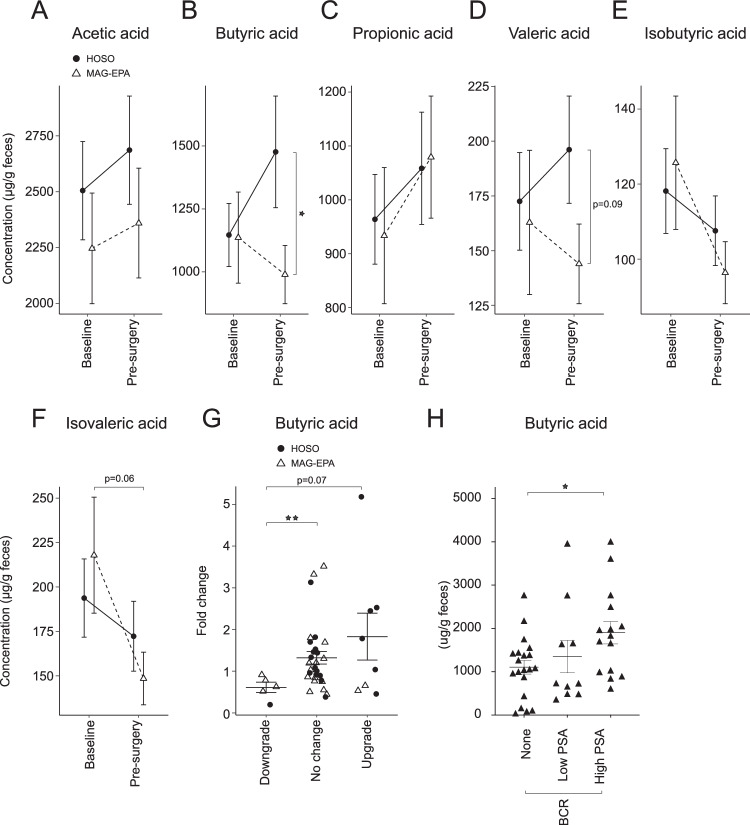Fig. 6. A dietary intervention reduces fecal short-chain fatty acid (SCFA) levels in prostate cancer patients.
Gas chromatography coupled with flame ionization detection (GC-FID) was used to measure the levels of different SCFA from feces of prostate cancer patients at baseline and after daily supplementation of monoglyceride eicosapentaenoic acid (MAG-EPA) PUFA (n = 21) or control of high oleic sunflower oil (HOSO) (n = 21) for 7.2 ± 0.37 weeks before radical prostatectomy. The different SCFAs measured were; (a) Acetic acid, (b) Butyric acid (p = 0.04, Welch’s t-test). c Propionic acid, (d) Valeric acid, (e) Isobutyric acid, (f) Isovaleric acid. g Fecal butyric acid levels were compared between baseline and pre-surgery for prostate cancer patients (n = 41). Fold change in butyric acid levels was associated with downgrade, no change or an upgrade of prostate cancer between radical prostatectomy and enrolment biopsy (p = 0.002, Welch’s t-test). h Fecal butyric acid levels were measured in patient samples corresponding to Fig. 1e and presented in relation to PSA biochemical recurrence (BCR) status (p = 0.02, Welch’s t-test). Graphs are mean ± SEM.

